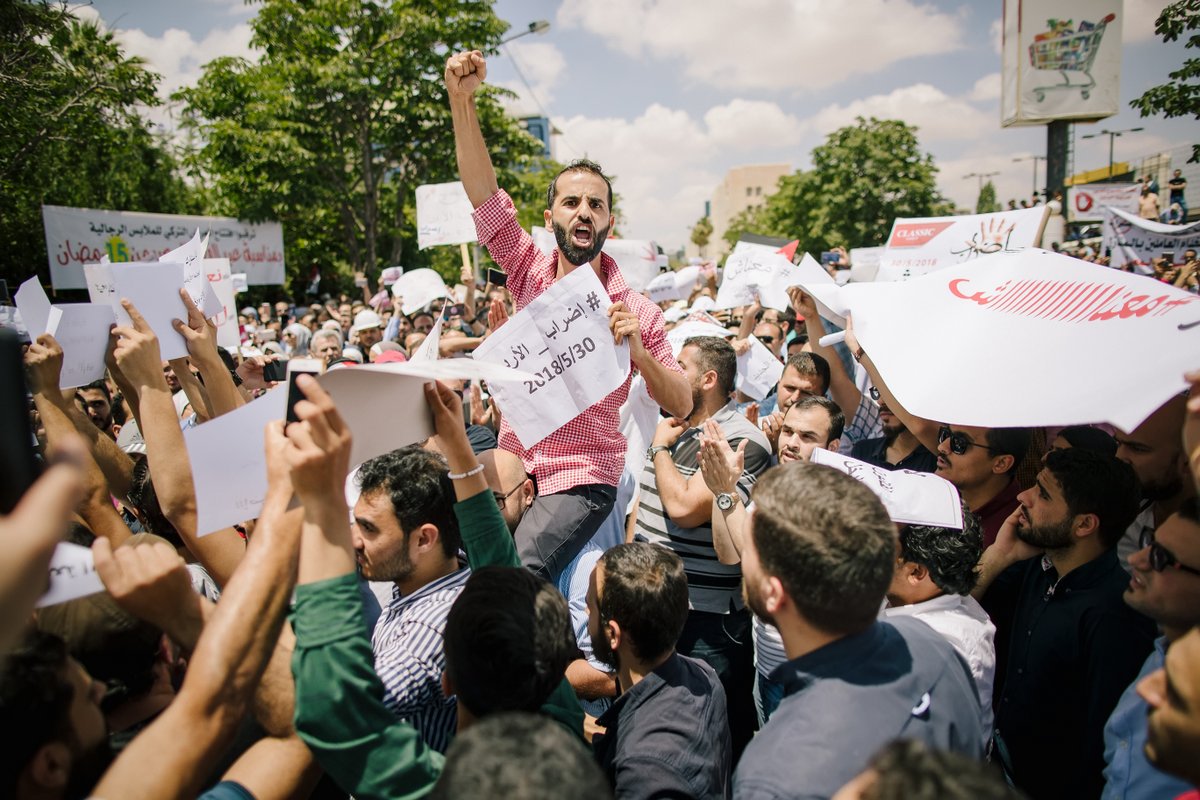On Saturday night, hundreds of protesters marched in the streets of the Jordanian capital Amman to protest the current economic situation, following a week-long turmoil culminating in a nation-wide strike on Wednesday and a continuation of protests thereafter.
According to a live video broadcasted on Saturday, by the Jordanian media organization ‘7iber’ via their Facebook page, thousands of marching protesters called for the “fall of King Abdullah”.
Throughout last week, Jordan has witnessed waves of protests and a nation-wide strike, triggered by a newly proposed income tax law. The new legislation would apply an income tax on those who earn 8000 Jordanian Dinars and more annually (201681.02 EGP), causing a backlash from the Jordanian lower middle class, and the Jordanian trade unions which then escalated to a nation-wide strike that took place on Wednesday (May 30th).
On Monday (May 28th), the Council of Jordanian Trade Unions endorsed the strike, after a meeting with Jordanian the Prime Minister, Hani Al-Mulki, and the council members, where no compromise has been reached. The Jordanian Engineers Association (JEA) called in a released statement on its members to take part in the protests to defend “people’s living conditions and to counter the negative repercussions that will befall the middle and low-income and marginalized segments of society”
While private hospitals did not take part in the strike, the Jordan Press Association called on its member to participate in the strike, calling it a “peaceful and modern way to disapprove the bill”. The Jordan Nurses Association also called for refraining from work from 9:00 am to 2:00 pm on May 30th.
As the movement gained traction, protesters called for freezing the hike on the fuel prices, raising their ceiling of demands. Fuel prices were supposed to increase by 5.5% while electricity prices by 19%.
On Friday, the Jordanian King Abdullah announced that he’s freezing the rise in prices, in an attempt to assuage the public discontent. Many Jordanian parliamentarians announced they’ll be voting against the income tax law. However, protests have not ceased despite the announcement.
Jordan has a struggling economy: a World Bank report revealed that unemployment rates in Jordan reached 18.3% in 2018.






Comments (0)